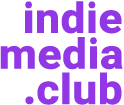If you’re using spreadsheets to keep track of your content development, you may find it takes more time to track progress and isn’t any easier to communicate with your team. Using a content calendar makes it easier to monitor progress and see how successful your posts are.
But what is a content calendar? This guide reviews everything you need to know.
What Is a Content Calendar?
A content calendar is a tool that connects managers, editors, and team members so they can keep track of workflow and understand how to hit the team’s goals. An effective content calendar makes it clear who’s responsible for what tasks and what stage each project is in so that the marketing team can stay on track.
Many content managers use spreadsheets or Google Sheets to manage their content planning. The problem with this approach is that, as teams get larger and content needs grow, it’s difficult to scale using these tools. At some point, you need a content calendar to keep every team member aware of their place in the larger picture and where each project is heading.
There are many different types of content, and a content calendar helps you track the progress of multiple campaigns, such as blogging, social media campaigns, and other digital marketing efforts.
Why Should You Use a Content Calendar?
Almost three-quarters of businesses feel that creating content is critical to their SEO strategies. Blog content and social media posts are two of the most popular forms of content marketers use to drive traffic to their websites.
The problem with having a content marketing strategy is you need a lot of content, and it becomes difficult to keep your eye on multiple campaigns.
Having a content calendar helps with the following:
- Communicating effectively with your team so that everyone knows their purpose, deadlines, and expectations for each project.
- Creating a consistent schedule so that your content updates aren’t disorganized or sporadic.
- Knowing how to use holidays and important dates throughout the year to create new opportunities to reach your audience.
- Determining how effective your current strategy is so you can adjust when needed.
- Providing your team with an outlet to brainstorm content ideas for each piece of content.
The Key Elements of a Content Calendar
Using a content calendar template helps your team collaborate with one another and is much more effective than keeping all your information in an Excel sheet. Great content calendar software accomplishes the following:
- Communicates deadlines and allows editors and managers to see the current progress.
- Creates an editorial calendar that editors and content managers can refer to when managing content creation.
- Allows you to track your posts on multiple social media platforms and create a social media content calendar so that you’re posting consistently.
- Provides your team with a place to give feedback and ideas for new content.
- Keeps each member of the team accountable.
The most important element of a content calendar is the ability to manage many projects at the same time. When using spreadsheets, it’s easy to get lost trying to keep track of 100s of articles, blogs, and social media posts.
Types of Content Calendars
There are as many content schedule programs available as there are different types of content, so what’s right for you depends on your content production and content management needs.
For example, if you’re focused on a single type of content, you may choose software with a focus on that form. Most businesses aim to produce quality content across multiple channels, however, so your solution may be a program capable of scheduling and tracking the progress of many forms of content.
Editorial calendar
An editorial calendar is ideal for creating blog posts and articles because it allows you to break each task down into milestones. You can create a publishing schedule that anticipates the delivery of a first draft, one or two rounds of revisions, and the final version on the due date. Having an editorial calendar can help you produce more high-quality content efficiently because you’re setting clear expectations for your writers, editors, and content managers.
An editorial calendar is also useful for deciding how much content you need and in what intervals to publish it. One of the ways you can optimize your content is to make sure you’re posting regular updates without flooding the internet with new content. The editorial calendar lets you know precisely how many posts you’ve published and the publishing dates for your upcoming content.
Social media calendar
Social media marketing can be more difficult because you might be posting on multiple social media platforms. A social media calendar helps you come up with ideas for new posts, create ideal personas to represent the voice of your brand, and monitor how much traffic you’re receiving from each post. Social media posts may be more involved than blogging, and a social media calendar helps you track the progress of multiple projects that come together before each post.
For example, many social media posts include infographics, videos, or creative images. You need to collaborate with each person contributing to the final post, and you can do this effectively with a social media calendar.
Other calendar types
Other calendars can help you manage any type of content strategy you can think of, including email marketing campaigns, product reviews, demonstrations, press releases, and landing pages.
The truth is that it’s short-sighted to focus on a single type of content, and most businesses need a versatile content calendar they can apply to more than one campaign type.
Content calendar tools
Below are just a couple of good content calendar tools from our list of the best content calendar software.
Monday.com
One of Monday.com’s best features is that it integrates with Google Calendar, Dropbox, and Google Drive. It allows you to see each version of a project so you can view the editorial process, making project approvals simple.
Communication through Monday.com is streamlined so that each member of the team can alert one another when they need a quick response.
Semrush Marketing Calendar
The on-page SEO feature makes the Semrush Marketing Calendar shine because it helps you see if there’s any weakness you’ve overlooked in your current strategy. It lets you view your overall SEO score, backlinks, content ideas, and suggestions for improvement.
Airtable
Airtable is another content calendar tool that tracks performance metrics. You can track the success of your campaigns after you’ve launched them and see which content is performing the best. Over time, your team can learn from this data and produce more consistent quality content.
GatherContent
If your content strategy includes blogging and social media posts, GatherContent is a great tool because it’s designed to track both. It allows you to create content standards and templates and then see how well your writers and editors are complying with your expectations. It also integrates with WordPress, Microsoft Word, and Adobe.
Use a Content Calendar To Schedule Every Aspect of Your Creation Process
Disorganization leads to chaos, which is why you can’t rely on outdated software to manage your content development teams.
A content calendar helps you set clear expectations, shows your team whether they’ve met your standards, and maps the creation of each piece of content from start to finish. Having a content calendar improves efficiency because you can control when your team needs to complete each step.
Many content calendars include features to help you create more effective content over time. Tracking how people interact with your content and where your traffic is coming from can help you create even better content in the future.


